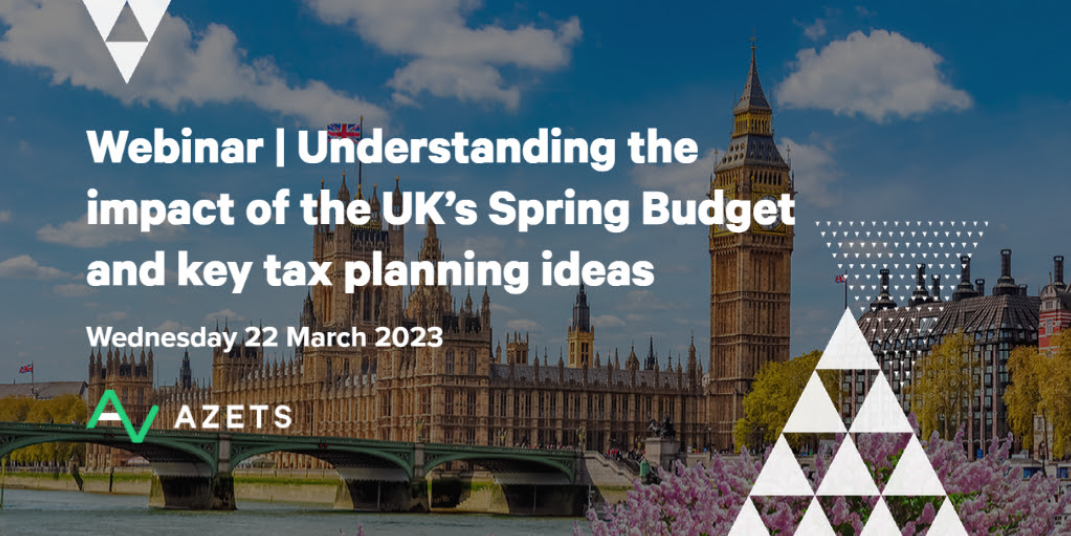
Spring Budget 2023: Summary of the announcements
At the start of this year, Prime Minister Rishi Sunak set out that halving inflation, growing the economy and reducing national debt were among his immediate priorities. Today’s Spring Budget was the first real opportunity to see what would be introduced to help achieve these goals.
In a break from the recent financial backdrop surrounding Chancellor fiscal statements, there are areas of slight positivity for the UK’s economy, but it’s clear that it’s early days on the path to economic recovery.
The positivity is based on peaking inflation, wholesale energy prices dropping and a surprise windfall for public finances due to higher than expected tax receipts. However, despite the ever so slight chinks of light, it was consistently noted in the lead up that Jeremy Hunt would not be in a position to announce substantial tax cuts and this was confirmed today. Instead, providing cost of living help and getting people back to work took centre stage.
So, what was announced?
Personal & employment taxes
Pensions
The lifetime allowance (LTA), the £1.07m tax-free cap on a worker’s pension pot, is to be abolished. The annual allowance, the amount that can be saved each year before tax is owed, is to increase to £60,000 from £40,000.
“Returnaships”
An extension has been announced to Apprenticeships to encourage the over-fifty working population to re-train. This was referred to by the Chancellor as “Returnaships” and of course more detail is awaited.
Business taxes
Capital allowances
In order to incentivise business investment and fill the void set to be left by the removal of the super deduction later this month, a ‘full capital expensing’ will come into effect for at least the next three years. This will mean that every pound invested into new IT equipment, plant or machinery can be deducted in full immediately from taxable profits. A 50% first-year allowance for qualifying special rate assets was also announced. While the corporation tax rate is set to increase next month from 19% to 25%, it is expected that the ‘full expensing’ will save businesses £9bn in tax every year.
Research & Development (R&D)
An enhanced credit to be introduced for qualifying SMEs with 40% or more of their total expenditure going towards R&D. The relief will entitle them to claim a credit worth £27 for every £100 spent.
Investment zones
Investment zones announced for West Midlands, Greater Manchester, North East, South Yorkshire, West Yorkshire, East Midlands, Teesside and Liverpool, as well as at least one in each of Scotland, Wales and Northern Ireland. These areas are designed to encourage innovation and access to an £80m fund is available for skills, infrastructure, tax reliefs and business rates retention.
Indirect taxes
Alcohol duty
From 1 August, the duty on draft products in pubs will be up to 11p lower than the duty in supermarkets. As a result of the Windsor Framework, this will also apply to every pub in Northern Ireland. This has been introduced in addition to what was announced in last year’s Autumn Statement, where the duty was frozen until August 2023.
Fuel duty
The 5p fuel duty cut will be kept in place for a further 12 months and it will be frozen. This is due to save the average driver £100 next year.
Cost of living
Energy price guarantee
Prior to the Spring Budget, it was announced that the energy price guarantee would be extended by three months. Originally scheduled to reduce at the end of March, the energy bill support will now continue until July, and it is predicted that this will save a typical household £160.
Register | Our budget webinar ![]()
Join our experts on 22 March, 12:30 – 14:00, as they explore the key announcements after the dust has settled.
They will also cover a range of topics for business leaders and individuals designed to ensure efficient, effective and strategic tax planning for the year ahead.

